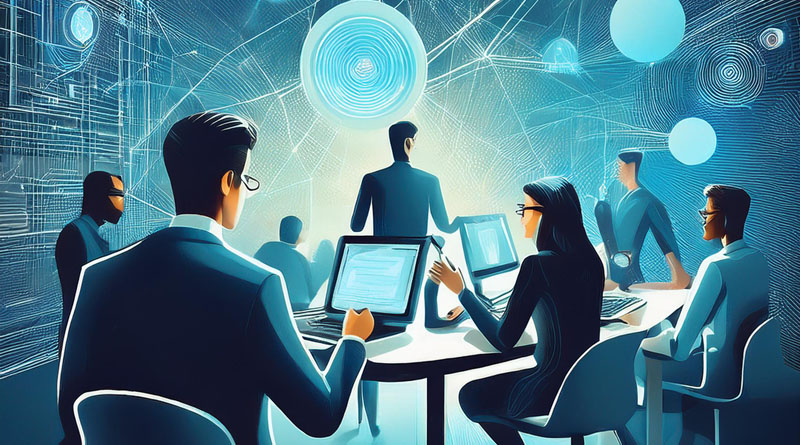
Navigating the AI Era: Preparing for the Future Through Learning and Adaptation
January 24, 2025As we stand on the precipice of what many are calling the AI era, the landscape of employment, skills, and professional development is shifting dramatically. Innovations in artificial intelligence (AI) are not merely augmenting existing roles; they are redefining the very nature of work across industries.
To secure their positions in this increasingly competitive environment, individuals must embrace AI tools and technologies. However, the question arises: how should individuals equip themselves with the necessary skills to thrive in an AI-driven world? This article explores the evolving nature of learning in the context of AI, weighing the merits of traditional training courses against the argument for self-directed, AI-assisted learning.
Why Learning AI?
The urgency to become proficient in AI tools is underscored by the rapid pace of technological advancement. As AI systems become more integrated into business processes, the demand for employees who can effectively leverage these tools is surging. From data analysis to customer service automation, AI is enhancing efficiency and opening new avenues for innovation. Consequently, professionals across various fields – be it marketing, finance, healthcare, or education – must cultivate a robust understanding of AI technologies to remain relevant.
Learn AI through Traditional Training
Traditionally, individuals have turned to formal training courses to acquire new skills. These courses, often led by industry experts, provide structured learning environments where participants can gain foundational knowledge and hands-on experience. For many, investing in such training is a viable pathway to competency. Organizations often sponsor employee training programs, recognizing that a well-trained workforce is essential for maintaining a competitive edge. Moreover, formal education offers networking opportunities and access to resources that can further enhance one’s career trajectory.
Learn AI from AI
However, the argument for learning AI from AI itself is gaining traction. As AI technologies become more sophisticated, they also become valuable tools for education. Platforms powered by AI can offer personalized learning experiences, adapting to the pace and style of individual learners. For instance, AI-driven educational tools can assess a user’s knowledge gaps and curate content that specifically addresses those areas, making learning more efficient and targeted. This self-directed approach not only empowers individuals to take charge of their own learning but also aligns with the fast-paced nature of technological evolution. In an era where knowledge can quickly become obsolete, the ability to learn autonomously and adapt to new tools is invaluable.
Furthermore, the learning landscape is evolving to incorporate diverse, accessible resources. Open-source platforms, online tutorials, and interactive coding environments allow learners to engage with AI technologies at their own pace and convenience. Many individuals are finding success through self-study, utilizing free or affordable resources available online, such as MOOCs (Massive Open Online Courses), webinars, and community forums. This democratization of knowledge is crucial in an era where the cost of formal education can be prohibitive for many.
Learn AI with Hybrid Approach
Nonetheless, the transition from traditional training to AI-assisted learning does not come without its challenges. One significant concern is the potential for misinformation or inadequate understanding when individuals rely solely on self-directed learning. The complexity of AI technologies necessitates a certain level of foundational knowledge, which may be difficult to attain without structured guidance. Moreover, the rapid evolution of AI means that staying current requires not only commitment but also discernment in selecting credible sources of information.
In my opinion, a hybrid approach that combines both formal training and AI-assisted learning may be the most effective strategy for individuals preparing for the future. Formal training can provide the necessary groundwork and context, while AI-driven tools can facilitate ongoing, personalized learning experiences. This combination allows individuals to build a solid foundation while also enabling them to adapt and evolve as new technologies emerge.
Conclusion
In conclusion, as we enter the AI era, the imperative for individuals to become proficient in AI tools cannot be overstated. The landscape of employment is changing, and those who fail to adapt risk obsolescence. While traditional training courses have their merits, the potential of AI-assisted learning presents an exciting and flexible alternative. By embracing a hybrid model of education that leverages both structured training and autonomous.
[14 total views]
